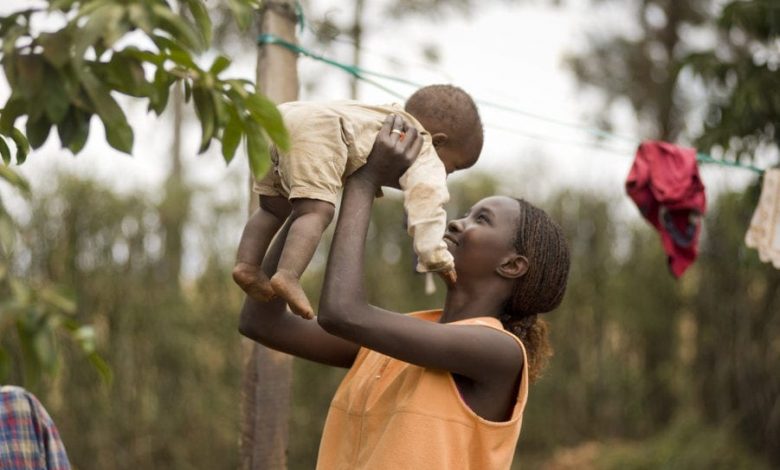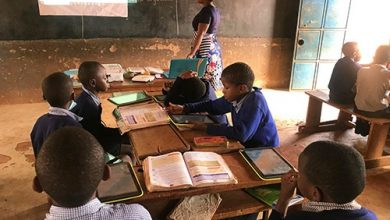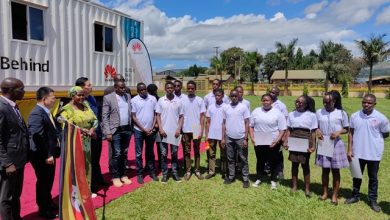Kenyan rural mothers embrace nutritional practices to improve children’s health
The women are part of a mother-to-mother support group formed in 2022 to facilitate sharing of information on child nutrition and positive parenting.

At the heart of Nthawa village, located in the upper eastern Kenyan county of Embu, mothers sat in the shade cast by trees as they listened to one of them narrating the importance of breastfeeding. They periodically nodded in approval as the speaker carried on with the conversation.
The women are part of a mother-to-mother support group formed in 2022 to facilitate sharing of information on child nutrition and positive parenting.
Winnie Kate Muthoni, a mother of two, disclosed that she prematurely introduced her child to porridge because of entrenched cultural influences.
“I gave my boy porridge when he was one week old because he cried a lot. Our culture dictates that when a child cries, they are pacified with porridge,” Muthoni told Xinhua during a recent interview.
Muthoni said her feeding approach shifted for her second-born child after going through a pilot program dubbed Universal Child Benefits (UCB) that supports mothers with education and cash assistance to improve the health outcomes of children below three years.
The initiative began in 2022 to cushion households from the ravages of the COVID-19 pandemic and drought, both of which disproportionately impacted children.
Kenya’s Ministry of Health, the United Nations Children’s Fund (UNICEF), and international charity organizations including Save the Children implemented the program in three Kenyan counties, namely Kisumu, Kajiado, and Embu.
Muthoni said the benefits she has witnessed include a healthy body weight for her children and increased vigor.
“My first child has a small statue for a seven-year because I made feeding mistakes with him; the second born is healthier because I got educated. I give her eggs, milk, and fruits in the right proportion,” she said.
Muthoni observed that in most villages, women fail to feed their children correctly due to a vast knowledge gap, as most incorrectly believe that nutritious food is inaccessible.
According to Mary Keringa, a sub-county nutritionist based in Embu, the UCB program has reduced malnutrition resulting in underweight children by 3 percent in upper eastern Kenya.
“Exclusive breastfeeding for six months brings down the risk of infections such as diarrhea and some respiratory illnesses. Breast milk has the nutrients and liquid a child needs to grow optimally. We are also teaching mothers that they do not have to go far looking for nutritious food because there is ordinary food found on their farms,” Keringa said.
According to the Kenya Demographic and Health Survey 2022, breastfeeding trends remained the same between 2014 and 2022, with 60 percent of children under six months exclusively breastfed. Four out of 10 children in the country are not exclusively breastfed hence limiting their growth and development.
Purity Nyakio, a mother of three and one of the beneficiaries of the program, admitted that during her lactation period, she failed to produce enough milk compelling her to supplement breast milk with solid food.
“This is a common problem with mothers since they do not know what food will improve their milk production. After learning the importance of eating right, I produced sufficient milk for my second child,” Nyakio said.
“We have also learned that children require diverse food to grow. In the past, we would sell eggs in the market so that we could use that money to buy bread, but now we have learned that children need eggs to grow strong,” she added.
According to Gaby Guerrero, chief of Social Policy at UNICEF Kenya, cash transfers have enhanced access to nutritious food and expanded awareness of children’s dietary needs.
“The program targeted at least 8,000 children who received 800 Kenyan shillings (about 6.03 U.S. dollars) monthly. In addition to buying food, it helped women open small businesses like basketry and ornaments, and sell them to earn a living,” Guerrero told Xinhua.
Guerrero added that the program has a far-reaching effect in altering the mindset of the broader community by empowering them with appropriate education on childcare.
Jane Kinuthia, a government officer, affirmed Guerrero’s opinion by observing significant declining cases of malnutrition occasioned by the drought thanks to the availability of funds.
“The most amazing thing is that mothers have gotten the right information on feeding. We hope the government will continue after recording a successful pilot,” she said.






